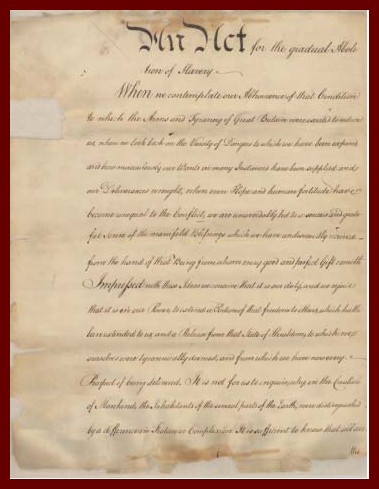On 1 March 1780, the Pennsylvania Legislature passed a law providing for the gradual abolition of slavery. It was meant to protect the rights of Pennsylvanians who owned slaves as property. Essentially it prohibited the further importation of slaves into the state, required all slaveholders to register all slaves annually with penalties for those who didn’t comply, and guaranteed that all children born in the state (after 1 March 1780) were free persons regardless of the condition of their parents. However, although these children were free persons, they were considered “indentured servants” to the master until they reached the age of 28, whereupon, they were freed from the indenture.
The 1780 law did not apply to members of Congress, nor did it apply to non-Pennsylvania residents who were visiting the state, unless the visit was for six months or more. This created problems, when in 1790, Philadelphia became the temporary capital of the United States. Did the law also apply to the president and members of his cabinet? What of members of the Supreme Court? George Washington took care not to spend more than six months at a time in Philadelphia in order to avoid litigation on the matter, but it did create problems for others.
One possible explanation of how an African American, Peter Crabb, ended up in Gratz, Dauphin County, Pennsylvania, in the early nineteenth century, was that he was the child of man named William Augustus Crabb (1743-1812) and one of his slaves. In the 1800 census for Middletown, Dauphin County, the household of William Augustus Crabb showed nine whites and two slaves, as well as three other persons. Peter Crabb was born about 1787, seven years after the passage of the gradual abolition law. As an indentured servant of color, he would not have been listed as “free white”, so it possible he was one of the three “other” persons. According to the gradual abolition law, Peter would have been freed from his indenture at age 28, which would have occurred about 1815. It was about that time that he ended up in Gratz. In later censuses, where he was listed as the head of a household, he was classified as a mulatto, traditionally meaning half white and half black.
